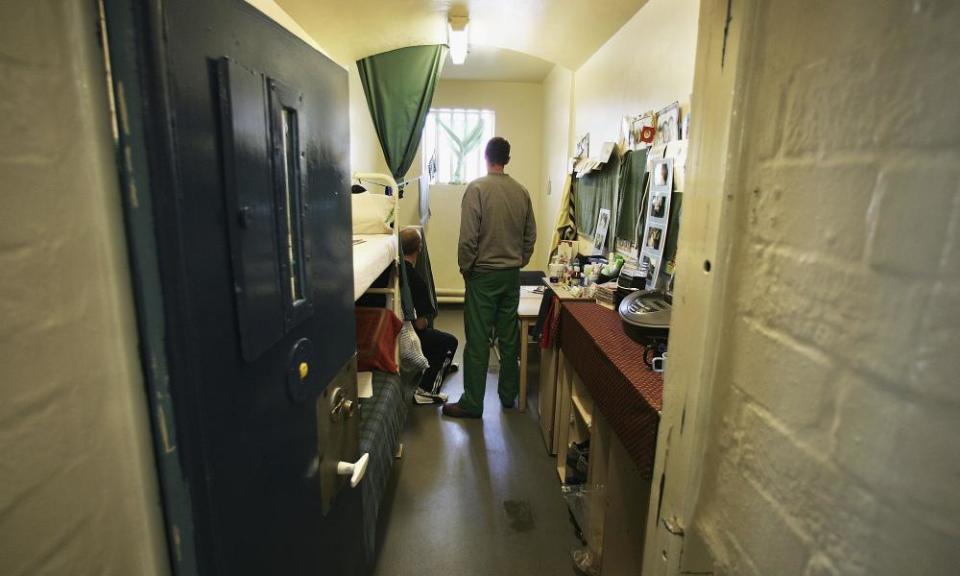More prisoners should 'commute' to work, says justice secretary

The justice secretary is to encourage prison governors to allow more inmates to “commute to work” by making greater use of their powers to grant prisoners temporary releases on licence.
David Lidington, in a major speech on prison reform, highlighted the day release initiative alongside a pilot project for prisoners to access housing on release. It is part of a concerted effort across the public sector to reduce stubbornly high reoffending rates.
The justice secretary said he wanted to see the record 86,000 prison population in England and Wales come down. He argued prison should be a last resort and promised to keep pushing for community sentences that judges and the public would feel confident about.
He put a renewed emphasis on post-release rehabilitation, citing the facts that 83% of former prisoners are without a job a year after release and 30% do not have a suitable home on their first night of release. He said a New Futures Network was being introduced to build links between prisons and local employers to promote the hiring of former offenders.
He said prison governors’ overcautious approach to the use of the temporary release on licence programme was a significant obstacle to expanding the job opportunities of former prisoners.
“Prison officers say they want to use release on temporary licence more so that those [coming to the end of their sentences] can commute to work from prison but that does depend on getting more employers involved in the first place,” he said.
The use of temporary release on licence for work experience has declined sharply since 2012, when it was used for day release 484,000 times. The latest figures show there were 83,740 instances in the first three months of this year and only 50 recorded failures to return on time.
Individual failures headlined in the press lay behind the reduction, but Lidington is in effect giving governors political backup to expand the scheme once again. He will look into the expansion of home detention curfew tags, under which about 2,000 prisoners are released early.
Lidington promised to press ahead with the prison modernisation programme to create “decent, humane conditions” but made no mention of his predecessor’s “new for old” programme, under which the closure of Victorian inner-city jails was to finance the building programme.

He told a Reform thinktank event in London that the “overriding trigger” for the levels of violence, harm and disorder inside prisons in England and Wales was the availability of drugs, including new psychoactive substances, and other contraband.
Lidington said a target of recruiting an extra 2,500 prison officers had passed the halfway mark, with a net increase of 1,255 in the last year. Every prison officer now had access to body-worn cameras and “police-style” handcuffs and restraints had been introduced, he added.
The justice secretary also highlighted a campaign against illicit phones and drones being used by criminal gangs to orchestrate the drug trade in prisons. The latest assessment shows 6,500 prisoners have links to or are involved in organised crime gangs.
Lidington held up a tiny mobile phone, the size of a cigarette lighter, which was made of plastic and advertised to Beat the Boss on Amazon, eBay and other websites. The “boss” in this case is thought to be a screening chair used in prisons to detect metal items such as mobile phones.
The minister urged online retailers to take them down from their platforms and stressed the number of convictions that have been secured in recent months against drone and attempts to smuggle drugs and phones into prisons.
The thrust of his speech centred on a fresh emphasis on rehabilitation, saying that safe and secure prison environments were the foundation stone for successful rehabilitation.
Lidington reminded his audience that two-thirds of prisoners serving sentences of less than 12 months reoffend within a year of release.
In the past six months, more control has been devolved to prison governors, including more influence over their healthcare services and programmes to help change offender behaviour. In October, this was extended to budgets for family services, including visitor centres and parenting skill classes, and in the new year will be extended to give them powers to commission libraries and workshops.
Lidington stressed the burden of reducing stubbornly high reoffending rates could not just be borne by the justice system.
“I believe that if we are to successfully rise to this challenge we need to mobilise more of government; we need a concerted effort across the public sector,” he said.

 Yahoo News
Yahoo News 
